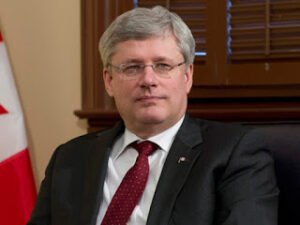Author: Christopher Leapock
-

It’s election time in Alberta
It’s election time in Alberta – the premier heard the call on this blog, or maybe one of the four million other blogs in Alberta that are more widely read, and deigned to ask voters for a mandate. Much to his surprise, the voters counteroffered with a trip to the glue factory. Yes, it looks…
-

Perspectives on genocide
Today is the centenary of the beginning of the Armenian genocide, when as many as 1.5 million Armenians were murdered by the Ottoman government. Using the word “genocide” here is a bit controversial, and by “controversial” I mean that it pisses offTurkish nationalists. The Hürriyet Daily News ran a columnarguing that the Turkish nationalist perspective…
-

An Open Letter to Forty-Seven Members of the United States Senate
Mar. 12, 2015An Open Letter to Forty-Seven Members of the United States Senate:I have noticed from the way you have been acting lately that you may not fully understand what diplomacy is. I am writing to tell you all about it. Diplomacy is very important. While you are in the United States Senate, you should…
-

Called it
For anyone who thought that my portrayal of jihadis as thugs with no knowledge of Islam was maybe too harsh, we have the following corroboration from the Economist: For recruits to an ostensibly religious militia, many of those joining IS seem to display a notable ignorance of Islam. Before leaving for Syria, Yusuf Sarwar and Mohammed…
-

Charlie Hebdo
Today I conducted a metaphysical interview with one of the men who allegedly carried out the massacre at Charlie Hebdo, killing Stéphane Charbonnier and eleven others. As you may know from earlier posts, a metaphysical interview is like a real interview except instead of talking to people you speculate about what they might say. It’s…
-

12 People You’ll Never Believe You Actually Elected
Today, instead of a fictional farce, we look at the actual farce that is Alberta politics. The Progressive Conservative party has been in power in Alberta for 43 years. I’m just going to repeat that number in case you missed it the first time: 43 years. They have literally been around longer than disco. They…
-

The young man and the sage
Once upon a time a young man who was acclaimed for his wit and the profundity of his thoughts decided to visit an old sage who lived as a hermit on a mountain. The young man climbed up the steep path to the hermit’s hut and found him working in his garden. “Great sage,” said…
-

Return to blogging
I’ve been neglecting this blog for a while, but it’s been a busy few months:I finished my book, now titled The Myrtle Child. It is the funniest thing since sliced bread. It is so epic it makes Game of Thrones look like People magazine. Next step is to find an agent, and then I’m on my…
-

A metaphysical interview with Toronto city councillor Doug Ford
This afternoon I had the opportunity for a metaphysical interview with Doug Ford, Toronto city councillor and brother to the mayor, Rob Ford. You’ve probably heard of Rob Ford: his pro-taxpayer, anti-downtown-fatcat policies have been featured in news media all over the world, and Youtube is full of amateur videos of his impromptu political speeches.…
-

Return to Ukraine
I’d hoped to make it back to Ukraine for another metaphysical interview for a while now, but with my work schedule it just hasn’t been possible. It takes time, you know, speculating about a transatlantic flight. Finally, while doing laundry this afternoon I managed to get back to Kramatorsk, in the self-declared sovereign state that…